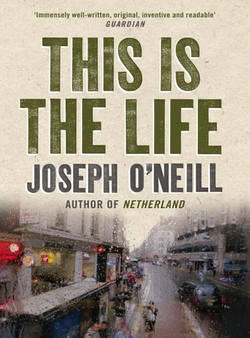Читать книгу This is the Life - Joseph O’Neill - Страница 10
SIX
ОглавлениеI made the mistake, when I unlocked Donovan’s front door and stepped through into the house, of shutting the door behind me, with the result that I straightaway stood in utter darkness. I could not see a tiling – not even my hand, raised an inch from my face. Edging forward, I felt my shoes kicking against something: mail; envelopes. Running my fingertips along the wall, my arms outstretched like a somnambulist’s, I groped for a light switch. Then, when the hallway lit up, the first thing I did was neglect to examine the post, which lay in a brown and white pile at the foot of the door. Instead, I headed for the drawing-room door. Donovan could forget about his post; me, I had only one thing in mind: his drinks, where did he keep his drinks?
Before I go any further, I want to make it clear that I am not a snooper, or a Nosy Parker. I mind my own business and keep out of other people’s affairs. It must be said that this is not a matter of ethics, or of principle, although maybe these things play a part; the simple fact is, other people’s private goings-on do not interest me; what I do not need to know, I do not want to know. For example: I never once read the diary of my brother Charlie, with whom I shared a room in my childhood, although night after night he left it on his desk with its pages open and his innermost thoughts and his darkest secrets before my eyes. Never once was I even tempted to sneak a look. Indeed, if my brother had offered to read out a passage I would have told him to stop, or blocked my ears. As far as I am concerned, people can keep what they do behind doors to themselves. I am not one to spy through the keyhole.
I think it is clear from what I have said that the last thing anyone could call me is a busybody. I never secretly steam open envelopes to read their contents, or press a glass to the wall to eavesdrop on conversations in adjoining rooms. My life is complicated enough as it is. I am at pains to say this because, contrary to my usual habits, I spent the evening in Donovan’s house reading his private notes, notes he had written for his eyes only, and listening to tape-recordings he had made for his ears only.
I could not help it. I was looking for something to drink when I came across a pile of sky-blue notebooks, tall rectangular ones of the type preferred by barristers. What had happened was that I had found no liquor downstairs, not a drop. When I opened the door to the drawing-room I received a shock. The furniture was spookily draped in white sheets, to protect it from dust I presume, and phantomish sofas and armchairs hovered in the half-darkness. I quickly pressed the light switch and four or five lamps scattered around the room illuminated simultaneously. It was a little startling, but looking around I spotted a drinks cabinet and took heart. As I walked across my footsteps clopped like hooves on the long floorboards: the rugs had been removed too, it seemed, and stored away somewhere. Anyway, the drinks cabinet proved a dead end. The only liquid I found was a neglected inch of pale sherry in one of the crystal decanters. I did not feel like drinking sherry, I wanted something a little stronger, like a glass of whisky with rocks of ice in it. So I went to the kitchen to have a look there, but again, no whisky, no ice-cubes, no anything for that matter. The multi-storey refrigerator, installed with racks, trays and receptacles for every kind of foodstuff, was bare and greasy: a dried-out half of an onion, a tub of margarine flecked with Marmite. Elsewhere, a stack of delicately interdependent washing-up – spoons, cereal bowls, coffee cups – was poised in the sink. A nasty smell arose from somewhere. No one had been around for weeks, that much was clear.
